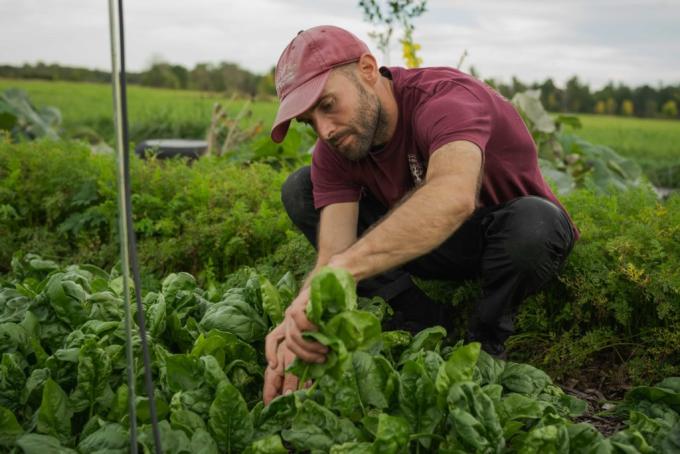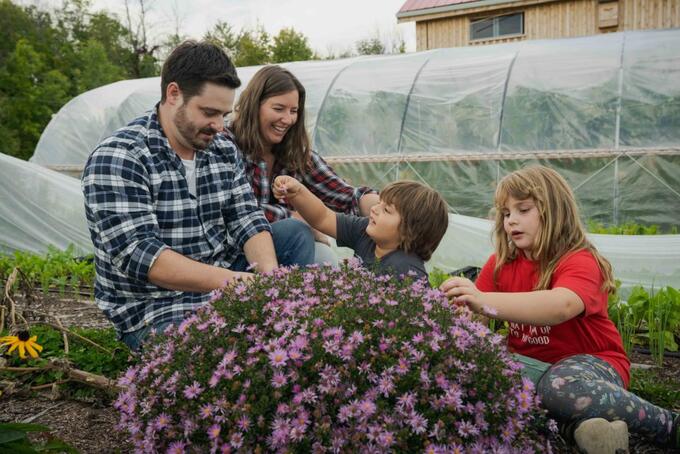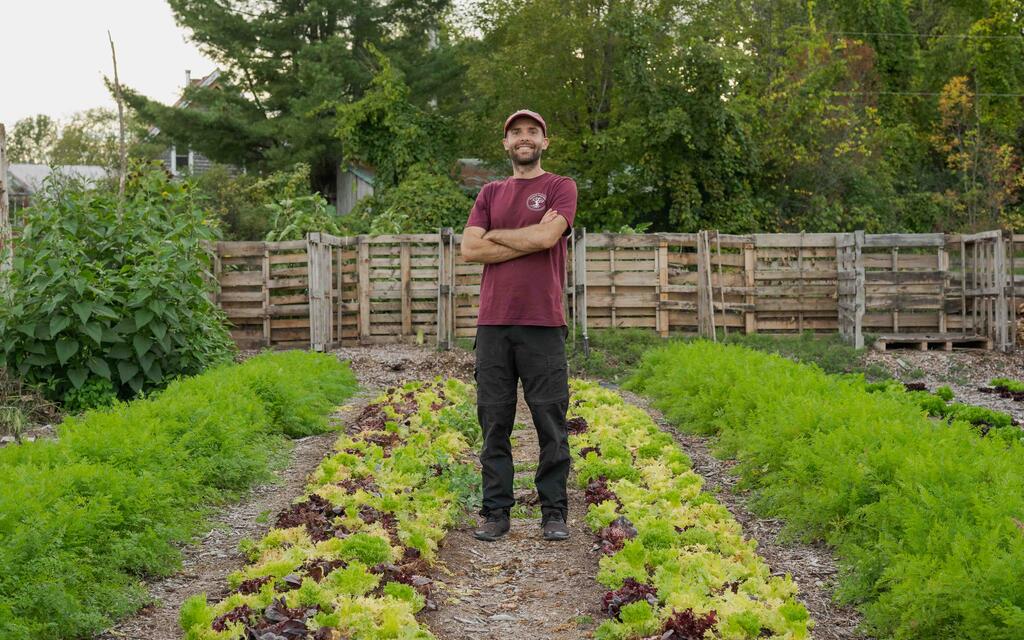Raise your hand if you’re all about snacks while hiking, camp meals on the fire, or cabin feasts with friends? (we’re going to go ahead and assume that your hand is up because all these things are awesome).
Plant life contributes to the ecosystem, meals are the cornerstone of communities, and packing the right food for outdoor activities can mean the difference between a safe experience and a challenge.
So, what does food have to do with responsible recreation? A lot actually, and maybe more than one may initially realize!
Responsible tourism is an overarching term that encompasses safety and environmental impact. It means being a good land steward while being respectful of oneself, others, and nature. This article will take a closer look at food and food practices with that responsible recreation lens, an aspect that is not often considered but can have significant impact.

Food and the Environment
Ever plucked a raspberry off the bush while hiking, smiled, and kept walking? Or thrown a fruit peel out the window while driving? How about sharing nuts or bread with birds? When it comes to our food practices and the environment, our innocent or well-intentioned habits do not negate impact.
Foraging has increased with popularity over the recent years, along with hiking and other outdoor activities. From puffballs to edible flowers, it’s a wild world (pun intended) that is exciting and piques our curiosity.
Hold up – before you run out to start foraging on local lands, ask yourself:
- Is it legal on this land? (hint: see below)
- Can you accurately identify the plant?
- Is this a species at risk?
- Do you know what part of the plant is edible?
- Is it the right season to pick this plant?
- Can you forage in manner that conserves the species?
- Do you know how to prepare the plant for safe consumption?
The Legal Stuff
Did you know that in Ontario, foraging is prohibited in provincial parks without proper authorization and also in conservation reserves? The article ‘Where the wild things are: Foraging in Ontario’ by Jordan Whitehouse states; “Some municipalities…ban foraging in city-run parks, forests, and ravines. The province prohibits the harvesting of any plant listed as endangered, threatened, or extirpated."
Beyond the legal implications, you also have to take an honest and humble approach by asking yourself if the experience of foraging is worth the impact to flora and fauna.
Did you know that we have at risk plant species in Ontario? Many parks, conservation areas, nature/wildlife reserves work hard to protect and nurture environments to help these species survive.
What about food waste? Two general rules are that the outhouse is not a garbage and throwing food scraps and peels out the car window or to the side of the trail is not acceptable. Why? Well, firstly, it goes against the Leave No Trace 7 Principles to outdoor ethics. Secondly, leaving food in the wild can negatively impact the wildlife.
Which bring us to the final point in the section, that sharing is not caring when it comes to wildlife. Wild animals are supposed to eat wild things. We can do more harm than good by introducing new food sources, attracting wildlife to roadways, and creating dependencies. Some municipalities have laws against feeding wildlife.
To learn more, visit the provincial site for more wildlife dos and don’ts.

Food in the Local Community
"Cooking is all about people. Food is maybe the only universal thing that really has the power to bring everyone together. No matter what culture, everywhere around the world, people eat together." ~ Guy Fieri
At our gatherings, whether it is for celebrations, loss, or simply social, food is always the pillar. We bond over food, and research shows that eating together may positively contribute to health outcomes.
When it comes to food, we are blessed in the Ontario Highlands. From farmers to artisans to bakers to cafes to food trucks – we have it all. This means that when you’re visiting, there’s always an opportunity to support local by buying and eating local.
There are so many delicious food trucks in Almonte, along with treats like Hummingbird Chocolate, and the donuts (now vegan options!) at HFT. Perth has incredible community based food stops like Picnic Perth and NorthFolk Café.
Let’s not forget Oh-el-la Café and Neat Café in Calabogie for those perfect post hike meals. How about Ottawa Valley Coffee in Renfrew? Or Fifth Chute Coffee in Eganville? And I know that their butter tarts are world class but have you tried the vegan poutine at The Cottage Cup in Golden Lake?
Speaking of butter tarts, have you tried the butter tarts from Hidden Goldmine Bakery in Madoc? Gooey, sweet, and delicious - the perfect tart for a fall day. Pair it with wine from Potter Settlement Winery or cider from Kings Mill Cider.
Get some amazing cured meats from Seed to Sausage in Sharbot Lake, and while you're there pick up some cheese to accompany it from Back Forty Cheese in North Frontenac, or The Barn Chefs in Coe Hill or Ontario Water Buffalo Company for some truly amazing cheeses.
In Haliburton, you won't lack for places to connect with delicious food, like fine dining at Rhubarb Restaurant in Haliburton, or stop in at McKeck's Tap & Grill for an Italian heritage pizza baked in a stone oven. Abbey Gardens will have something homegrown for you to take with you.
Safety and Self
When it comes to our own safety, there are a few responsible recreation tips when it comes to food.
- The golden rule while hiking is to eat and drink, even when you don’t feel like eating and drinking.
- Keep electrolytes on hand while enjoying the outdoors, no matter the season. Keep a package or two of electrolytes in the first aid kit.
- Snacks and meals don’t have to be fancy or expensive. There’s always the option to carry protein and snack bars, but you can also keep it simple with fruits, vegetables, oatmeal, nut butters, meat sticks or jerky, and trail mix.
- Carry emergency food and a water filtration system.
There is plenty of “food for thought” when it comes to responsible recreation and safety for the environment, community, and self. Mostly, it’s about building connections over a commonality, and then being aware of how our food habits have impact.
After all, as Chief Seattle is quoted as to saying; “The Earth does not belong to us: we belong to the Earth.”
-
Looking for more inspiration for connecting to food in Ontario’s Highlands? Click here to find more information about making an edible connection in the region.







